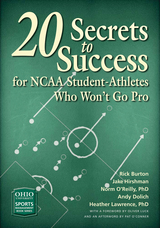
The vast majority of student-athletes dreaming of athletic stardom won’t make it to the pros. Yet, the discipline and skills they’ve developed while balancing a sport and academics make them ideally suited for satisfying careers elsewhere.
In 20 Secrets to Success for NCAA Student-Athletes Who Won’t Go Pro, the authors draw on personal experience, interviews, expert opinion, and industry data to provide a game plan for student-athletes through key transitions at each stage of their careers, from high school through college and beyond.
Modeled on Stephen Covey’s The 7 Habits of Highly Effective People, this book provides a much-needed strategy for achieving career success. Readable and concise, it will be a valuable tool for students, parents, and sports administrators.
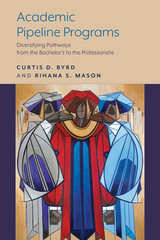
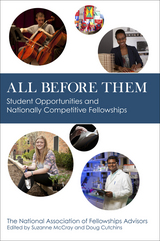
This collection of essays helps advisors by providing information about major changes in the fellowship and scholarship landscape. Included is guidance on the new Schwarzman scholarship for study in China, the recently added video interview for the Mitchell scholarship, and the new rules for the Rhodes personal statement (an advisor’s take). Additionally, seasoned advisors share practical advice, ranging from workshops that engage students and faculty to helpful technological tools to personal statements and office assessments. Keeping the focus on the scholar in the scholarship process is a central theme. All before Them is an important addition to any faculty mentor’s or scholarship advisor’s toolkit.
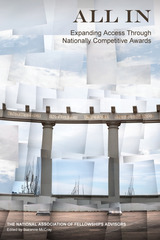
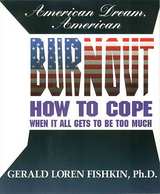
This book was written for anyone who wants to be free from the tyranny of stress and burnout. Burnout can affect anyone, especially in today’s world, where “The American Dream” has been replaced by the realities of a faltering economy, breakdown of the family and societal distintegration. Burnout is not a natural state, and no one should have to live with its emotional pain. Dr. Fishkin explains how to readjust couterproductive thought processes and behaviors and learn new, healthy methods for coping. He details both self-help techniques and suggested resources to reach out to the community or the workplace for assistance.
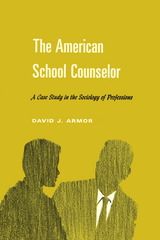
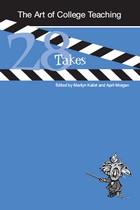
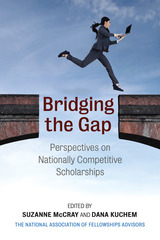
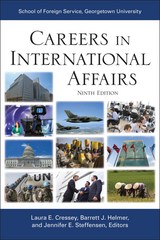
This is the essential resource and job-hunting guide for all those interested in international careers in the US government, multinational corporations, banks, consulting companies, international and nongovernmental organizations, the media, think tanks, universities, and more. Careers in International Affairs, now in its ninth edition, provides up-to-date insights about the range of possibilities in the global workplace and tips on how to get these jobs—along with profiles of hundreds of important employers.
This helpful guide includes a directory of more than 250 organizations who offer internationally oriented jobs such as the US Department of State, CIA, United Nations, World Bank, J.P. Morgan Chase, Google, McKinsey & Company, and dozens more. The book also includes insightful testimonies about what these careers are really like from both junior and senior professionals in these fields. Careers in International Affairs gives advice on academic paths that will prepare students for demanding international careers and guidance on how to write resumes, interview for jobs, network, and maintain their online profile.
Published in cooperation with the Edmund A. Walsh School of Foreign Service at Georgetown University, the oldest school of international affairs in the United States, Careers in International Affairs will encourage job seekers to consider their goals and talents, widen their horizons to consider new possibilities, and help them realize that their future can hold several careers, while reminding all that it is never too early—or too late—to consider the realm of opportunities that await them throughout the world.
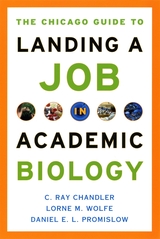
An academic career in the biological sciences typically demands well over a decade of technical training. So it’s ironic that when a scholar reaches the most critical stage in that career—the search for a job following graduate work—he or she receives little or no formal preparation. Instead, students are thrown into the job market with only cursory guidance on how to search for and land a position.
Now there’s help. Carefully, clearly, and with a welcome sense of humor, The Chicago Guide to Landing a Job in Academic Biology leads graduate students and postdoctoral fellows through the perils and rewards of their first job search. The authors—who collectively have for decades mentored students and served on hiring committees—have honed their advice in workshops at biology meetings across the country. The resulting guide covers everything from how to pack an overnight bag without wrinkling a suit to selecting the right job to apply for in the first place. The authors have taken care to make their advice useful to all areas of academic biology—from cell biology and molecular genetics to evolution and ecology—and they give tips on how applicants can tailor their approaches to different institutions from major research universities to small private colleges.
With jobs in the sciences ever more difficult to come by, The Chicago Guide to Landing a Job in Academic Biology is designed to help students and post-docs navigate the tricky terrain of an academic job search—from the first year of a graduate program to the final negotiations of a job offer.
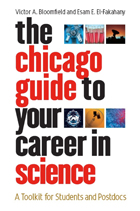
Victor A. Bloomfield and Esam E. El-Fakahany, both well-known scientists with extensive experience as teachers, mentors, and administrators, have combined their knowledge to create a guidebook that addresses all of the challenges that today’s scientists-in-training face. They begin by considering the early stages of a career in science: deciding whether or not to pursue a PhD, choosing advisors and mentors, and learning how to teach effectively. Bloomfield and El-Fakahany then explore the skills essential to conducting and presenting research. The Chicago Guide to Your Career in Science offers detailed advice on how to pursue research ethically, manage time, and communicate effectively, especially at academic conferences and with students and peers. Bloomfield and El-Fakahany write in accessible, straightforward language and include a synopsis of key points at the end of each chapter, so that readers can dip into relevant sections with ease.
From students prepping for the GRE to postdocs developing professional contacts to faculty advisors and managers of corporate labs, scientists at every level will find The Chicago Guide to Your Career in Science an unparalleled resource.
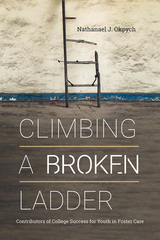
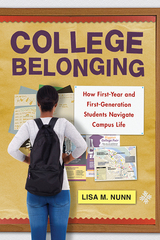

Stressed and sleepless, today's high school students race from school to activities in their most competitive game of all: admission to a top-ranked, prestigious university. But is relying on magazine rankings and a vague sense of "prestige" really the best way to choose a college? Is hiring test prep teachers and consultants really the best way to shape your own education?
In this book, edited by a veteran admissions counselor, a passionate advocate for students, the presidents and admission deans of leading colleges and universities--like Dartmouth, Vanderbilt, Harvard--remind readers that college choice and admission are a matter of fit, not of winning a prize, and that many colleges are "good" in different ways. They call for bold changes in admissions policies and application strategies, to help both colleges and applicants to rediscover what college is really for. It's not just a ticket to financial success, but a once-in-a-lifetime chance to explore new worlds of knowledge.
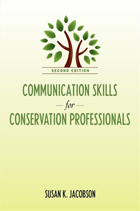

Community and public support are essential to the success of conservation and resource management programs. Often, the level of support received depends on whether or not the goals and importance of the program have been clearly explained to the public, the press, or policymakers. Without good communication, even the best programs are liable to fail.
Communication Skills for Conservation Professionals provides in-depth guidance on achieving conservation goals through better communications. It introduces communication approaches -- marketing and mass media, citizen participation, public information, environmental interpretation, and conservation education activities -- and offers scores of real-world examples and straightforward advice that will help conservationists develop the the skills they need to communicate effectively. Following an introductory chapter that provides an overview of the communication process, the book:
- describes research techniques for gathering background information and targeting audiences
- outlines the steps involved in developing a communications campaign
- explains how to use mass media-from giving interviews to writing news releases and holding press conferences
- provides examples for developing interpretive media for conservation
- explores long-term conservation education strategies
- presents program evaluation techniques to determine the level of success achieved, or to identify steps for improvement
Communication Skills for Conservation Professionals is a much-needed contribution to the environmental literature that will play a vital role in helping scientists, managers, concerned citizens, and students to more effectively communicate their knowledge and concern about the environment, and to achieve greater professional and community success with their environmental campaigns.
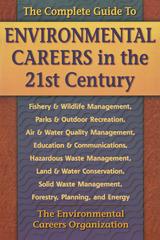
Compiled by the acknowledged leaders in environmental career information, The Complete Guide to Environmental Careers in the 21st Century is a completely revised and updated edition of what has become the standard reference on the subject. Organized for ease of use and fully updated to reflect ongoing changes in environmental fields, it is the most comprehensive and reliable resource available for anyone seeking information about environmental career opportunities and how to get started in one. The book presents: a thorough consideration of environmental trends for the 21st century and the likely impact of those trends on future career opportunities an overview of environmental professions including a statistical review of the private sector environmental industry, state and local government, federal government, academia, and nonprofits valuable tips on career search strategies along with information about education, volunteering, and internships case studies of representative work and individual profiles that give readers an up-close and personal look at a variety of environmental professionals, what they really do, and how they arrived at their current positions resources for further information including more than 100 of the top web sites for the environmental career seeke.
Chapters examine the entire spectrum of career fields, with each chapter providing an "at a glance" summary of the field; discussion of history and background along with current issues and trends; examination of specific career opportunities and the educational requirements for each; salary ranges by type of employer, level of experience, and responsibility; and an extensive list of resources for further information. Fields profiled include: planning, education and communications, energy management and conservation, fisheries and wildlife management, forestry, land and water conservation, and others.
Written at a broad introductory level, The Complete Guide to Environmental Careers in the 21st Century provides an informative and inspirational starting place from which to learn more about specific fields. For recent college graduates, students, volunteers, librarians, career counselors, or anyone interested in working to protect the environment, it is an essential reference.
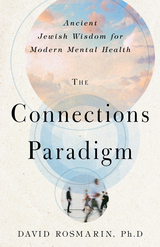
The idea behind the paradigm is that at any given moment, human beings are either “connected” or “disconnected” across three key relationships. To be “connected” means to be in a loving, harmonious, and fulfilling relationship; to be “disconnected” means, of course, the opposite. The three relationships are those between our souls and our bodies, ourselves and others, and ourselves and God.
These relationships are hierarchal; each depends on the one that precedes it. This means that we can only connect with God to the extent that we associate with others, and we cannot connect with others if we don’t connect with ourselves. The author, Dr. David H. Rosmarin, devotes a section to each relationship and describes techniques and practices to become a more connected individual. He also brings in compelling stories from his clinical practice to show the process in action.
Whether you’re a clinician working with clients, or a person seeking the healing balm of wisdom; whether you’re a member of the Jewish faith, or a person open to new spiritual perspectives, you will find this book sensible, practical, and timely because, for all of us, connection leads to mental health.
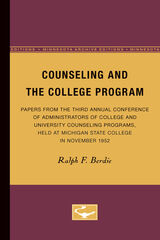

The Drama Therapy Decision Tree unites therapy interventions with diagnostic information, individual and group processes, psychological distance, the drama therapy pie, and global outcomes. Rather than using a standardized protocol that makes the decisions for the therapist, drama therapy is based on dynamic, embodied, creative action with participants in the here and now. Conscious planning on the part of the drama therapist before the session supports spontaneity and creativity, preparing them to make good therapeutic decisions in the moment during the session.
The authors strive to provide a common language for communicating what drama therapists do and how they do it in order to demystify drama therapy for other mental health and medical professionals. Using the decision tree as a guide, early career drama therapists can move forward confidently and ground their work with participants in an integrated system.
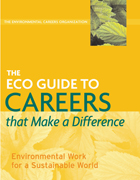
Developed by The Environmental Careers Organization (ECO, the creators of the popular Complete Guide to Environmental Careers), this new volume is unlike any careers book you've seen before. Reaching far beyond job titles and resume tips, The ECO Guide immerses you in the strategies and tactics that leading edge professionals are using to tackle pressing problems and create innovative solutions.
To bring you definitive information from the real world of environmental problem-solving, The ECO Guide has engaged some of the nation's most respected experts to explain the issues and describe what's being done about them today. You'll explore: Global climate change with Eileen Claussen, Pew Center for Global Climate Change; Biodiversity loss with Stuart Pimm, Nicholas School for the Environment at Duke University; Green Business with Stuart Hart, Kenan-Flager Business School at University of North Carolina; Ecotourism with Martha Honey, The International Ecotourism Society; Environmental Justice with Robert Bullard, Environmental Justice Center at Clark Atlanta University; Alternative Energy with Seth Dunn, Worldwatch Institute; Water Quality with Sandra Postel, Global Water Policy Project; Green Architecture with William McDonough, McDonough + Partners; and twelve other critical issues.
To demonstrate even more clearly what eco-work feels like on the ground, The ECO Guide offers vivid "Career Snapshots" of selected employers and the professionals that work there. You'll visit government agencies like the USDA Forest Service, nonprofit organizations like Conservation International and Project Wild, and local advocates like Alternatives for Community and Environment. You'll go inside environmental businesses like Wildland Adventures and Stonyfield Farms. And you'll learn from academic institutions like the National Center for Atmospheric Research and the Gund Institute for Ecological Economics.
ECO also identifies and describes forty specific jobs that are representative of environmental career opportunities in the twenty-first century. It provides dozens of the best Internet resources. And most importantly, The ECO Guide offers all of the insight about current trends you expect from ECO, the acknowledged leaders in environmental career information.
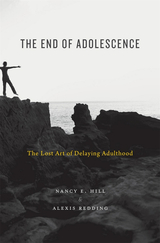
Is Gen Z resistant to growing up? A leading developmental psychologist and an expert in the college student experience debunk this stereotype and explain how we can better support young adults as they make the transition from adolescence to the rest of their lives.
Experts and the general public are convinced that young people today are trapped in an extended adolescence—coddled, unaccountable, and more reluctant to take on adult responsibilities than previous generations. Nancy Hill and Alexis Redding argue that what is perceived as stalled development is in fact typical. Those reprimanding today’s youth have forgotten that they once balked at the transition to adulthood themselves.
From an abandoned archive of recordings of college students from half a century ago, Hill and Redding discovered that there is nothing new about feeling insecure, questioning identities, and struggling to find purpose. Like many of today’s young adults, those of two generations ago also felt isolated and anxious that the path to success felt fearfully narrow. This earlier cohort, too, worried about whether they could make it on their own.
Yet, among today’s young adults, these developmentally appropriate struggles are seen as evidence of immaturity. If society adopts this jaundiced perspective, it will fail in its mission to prepare young adults for citizenship, family life, and work. Instead, Hill and Redding offer an alternative view of delaying adulthood and identify the benefits of taking additional time to construct a meaningful future. When adults set aside judgment, there is a lot they can do to ensure that young adults get the same developmental chances they had.
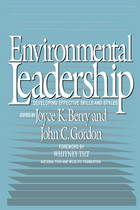
This beautifully illustrated, comprehensive guide explains how to design creative, yet practical, landscapes that treat on-site stormwater management as an opportunity to enhance site design. Artful Rainwater Design has three main parts: first, the book outlines five amenity-focused goals that might be highlighted in a project: education, recreation, safety, public relations, and aesthetic appeal. Next, it focuses on techniques for ecologically sustainable stormwater management that complement the amenity goals. Finally, it features diverse case studies that show how designers around the country are implementing principles of artful rainwater design.
Artful Rainwater Design is a must-have resource for landscape architects, urban designers, civil engineers, and architects who won't let stormwater regulations cramp their style, and who understand that for a design to truly be sustainable, people must appreciate and love it. It is a tool for creating landscapes that celebrate rain for the life-giving resource it is— and contribute to more sustainable, healthy, and even fun, built environments.
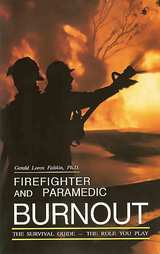
Firefighter and Paramedic Burnout was the first comprehensive book dealing with the recognition and treatment of burnout among firefighter and paramedic personnel. Today, this standard still serves to provide readers with a system of identification of early warning signs of excessive stress, its personal and social consequences, and interventions that have been proven to assist firefighters and their family members to return to a state of health and productivity.
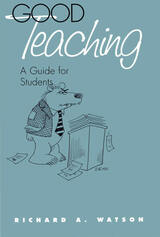
From junior college to Ivy League university, the level of teaching ranges from "great to awful," according to Richard A. Watson, who explains not only how to survive but how to profit from and enjoy your college experience.
To help students make important personal choices—what school? what major? what classes?—Watson explains such broad areas as administrative structure, institutional goals, and faculty aspirations.
Charging the student with the ultimate responsibility for learning, Watson presents certain academic facts of life: teaching is not the primary concern of either the faculty or the administration in most institutions; few professors on the university level have had any training in teaching, and even fewer started out with teaching as their goal; senior professors do not teach much (the higher the rank and salary, the less time in the classroom), and those seeking tenure must emphasize research to survive; and almost certainly, the bad teacher who is a good researcher will get paid more than the good teacher who does not publish.
This is a book about good teaching and how to find it. Rejecting the conventional wisdom that a professor devoted to research will not be effective in the classroom, Watson advises that you take classes from the professor you may have been cautioned to avoid.
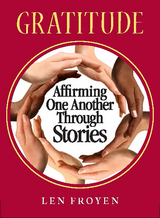
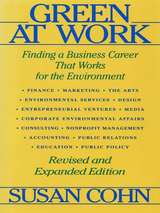
Green at Work, published by Island Press in 1992, was the first source of information to help nontechnical but environmentally concerned job seekers learn about career opportunities with environmental companies or within the newly emerging "green" corporate culture. Now entirely revised and expanded, this indispensable volume again offers invaluable tools and strategies for launching a green career.
Susan Cohn has expanded her scope beyond the business world to examine environmentally focused, nontechnical careers in a wide variety of fields, including communications, banking and finance, consulting, public policy, the non-profit sector, and more. This completely updated edition includes:
- profiles of more than 70 individuals that illustrate how people have woven their skills, values, and passions into their work
- listings of more than 400 companies with contact names, addresses, phone numbers, information on what the company does, and its environmental programs and policies
- listings of more than 50 resources, including organizations, publications, and other sources of information
- a bibliography of recommended readings
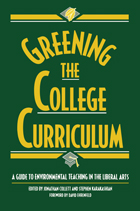
Greening the College Curriculum provides the tools college and university faculty need to meet personal and institutional goals for integrating environmental issues into the curriculum. Leading educators from a wide range of fields, including anthropology, biology, economics, geography, history, literature, journalism, philosophy, political science, and religion, describe their experience introducing environmental issues into their teaching.
The book provides:
- a rationale for including material on the environment in the teaching of the basic concepts of each discipline
- guidelines for constructing a unit or a full course at the introductory level that makes use of environmental subjects
- sample plans for upper-level courses
- a compendium of annotated resources, both print and nonprint

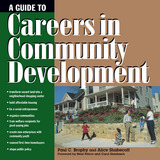
Community development -- the economic, physical, and social revitalization of a community, led by the people who live in that community -- offers a wide range of exciting and rewarding employment options. But until now, there has been no "road map" for professionals, volunteers, students, or anyone wishing to become involved in the field.
A Guide to Careers in Community Development describes the many different kinds of community development jobs available, ranging from community organizing, to financing housing and new businesses, to redeveloping brownfields. It offers advice on how to break into the field along with guidance for career advancement and lateral movement.
Following an introductory chapter that offers an overview and definition of community development and its history, the authors describe:
- different institutions in the field and how they fit together
- pros and cons of community development careers, with a self-assessment quiz for readers to use in analyzing their suitability for the field
- the work and skills involved in different kinds of positions
- how to prepare for and move up in a career
- how to land that first job
A Guide to Careers in Community Development is an essential reference for anyone interested in working in the community development field, including graduate and undergraduate students, volunteers, and mid-career professionals seeking a more fulfilling line of work.
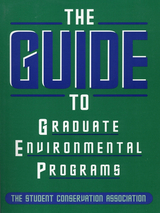
The Guide to Graduate Environmental Programs provides over 160 profiles of graduate programs across the country that offer curricula related to the environment. Because it was impossible to include every program in the book, and because these programs are constantly changing, Island Press welcomes suggested changes and additions to the profiles.
While Island Press is not the official "author" of the book, we are eager to receive new or updated information to be included in the next edition. Drawing from this information, Island Press has created an online listing of programs that were not profiled in the book. To submit your contribution, either fill out the postcard included in the book itself, or e-mail the name, address, phone number, and e-mail address of the "contact person" for that program; someone will contact that person for further information as the second edition is developed. If you would like to correct an error or to provide specific "update" information, please e-mail that information or return the card included in the book.
Following is a description of how the book was researched and the profiles compiled:
The research process began with a list, drawn up by career center staff at University of California at Santa Barbara, of 412 environmental programs, departments, and schools within universities across the country. The list was based on a literature search, queries over the Internet, and contact with environmental professionals and associations. Certificate-only programs were not included. Selection preference was given to programs mentioned repeatedly by environmental professionals, and to those drawing a more diverse student body.
Postcards requesting information and course catalogues were sent to all 412 programs.
A survey was mailed to faculty representing each program. Of the 412 graduate programs queried, 156 programs completed and returned their surveys. Each completed survey was reworked into a profile. Schools that did not respond to the mailing were contacted twice by phone to remind them to return the survey.
To supplement this information, and to ensure that the most noteworthy programs were included in the guide, additional profiles were compiled for a select number of key programs that failed to return their surveys. These latter profiles were based on literature review and personal interviews.
In all, each program was contacted three times – once by mail and twice by phone – to encourage them to submit their surveys, and to verify and update information.
The absence of a particular profile, or segment of a profile, reflects no editorial judgement on the part of the authors. Rather, if a specific program was not profiled, the most likely explanation is that the program in question did not return its survey. If you have information on other graduate environmental programs, please pass that information on to us, so that we can include them in future editions of the guide.
Most of the information provided was accurate as of November 1994 – the date by which the surveys were completed – and some follow-up verification was conducted during the summer of 1996, before the book went into production. There are an ever-expanding number of programs in the environmental field, and existing programs are constantly evolving. Readers should therefore expect to continue to encounter ongoing changes in names, titles, and phone numbers.
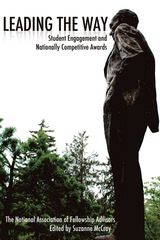
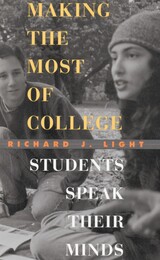
Why do some students make the most of college, while others struggle and look back on years of missed deadlines and missed opportunities? What choices can students make, and what can teachers and university leaders do, to improve more students’ experiences and help them achieve the most from their time and money? Most important, how is the increasing diversity on campus—cultural, racial, and religious—affecting education? What can students and faculty do to benefit from differences, and even learn from the inevitable moments of misunderstanding and awkwardness?
From his ten years of interviews with Harvard seniors, Richard Light distills encouraging—and surprisingly practical—answers to fundamental questions. How can you choose classes wisely? What’s the best way to study? Why do some professors inspire and others leave you cold? How can you connect what you discover in class to all you’re learning in the rest of life? Light suggests, for instance: studying in pairs or groups can be more productive than studying alone; the first and most important skill to learn is time management; supervised independent research projects and working internships offer the most learning and the greatest challenges; and encounters with students of different religions can be simultaneously the most taxing and most illuminating of all the experiences with a diverse student body.
Filled with practical advice, illuminated with stories of real students’ self-doubts, failures, discoveries, and hopes, Making the Most of College is a handbook for academic and personal success.
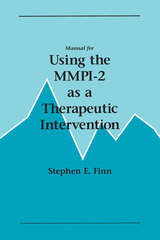
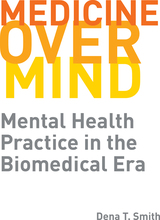
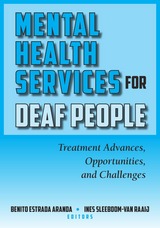
Volume editors Benito Estrada Aranda and Ines Sleeboom-van Raaij have divided the book into three parts—Mental Health Issues and Treatment, Deaf Populations, and Deaf Children and Their Families. In the first part, the contributors provide in-depth analysis of specific challenges and treatment modalities ranging from the provision of mental healthcare as a basic human right to psychopharmacological treatment, the challenges in developing mental health services for deaf and hard of hearing people in countries where none exist, and new treatment therapies.
Part two looks at issues of self-esteem and cultural identity among deaf and hard of hearing adults in Greece and Cyprus, the services for deaf people at a public health clinic in Austria, and the quality of life among Latino Deaf bilinguals in the United States. In the last part, the contributors focus on mental health issues found in deaf children and adolescents and on the relationships between deaf teenagers and their hearing mothers. The volume concludes with a case study of a prelingually deaf child diagnosed as autistic. Taken all together, these cutting-edge articles explore the important issues within the specialized area of mental health and deafness.
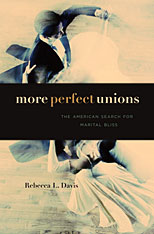
The American fixation with marriage, so prevalent in today's debates over marriage for same-sex couples, owes much of its intensity to a small group of reformers who introduced Americans to marriage counseling in the 1930s. Today, millions of couples seek help to save their marriages each year. Over the intervening decades, marriage counseling has powerfully promoted the idea that successful marriages are essential to both individuals' and the nation's well-being.
Rebecca Davis reveals how couples and counselors transformed the ideal of the perfect marriage as they debated sexuality, childcare, mobility, wage earning, and autonomy, exposing both the fissures and aspirations of American society. From the economic dislocations of the Great Depression, to more recent debates over government-funded "Healthy Marriage" programs, counselors have responded to the shifting needs and goals of American couples. Tensions among personal fulfillment, career aims, religious identity, and socioeconomic status have coursed through the history of marriage and explain why the stakes in the institution are so fraught for the couples involved and for the communities to which they belong.
Americans care deeply about marriages—their own and other people's—because they have made enormous investments of time, money, and emotion to improve their own relationships and because they believe that their personal decisions about whom to marry or whether to divorce extend far beyond themselves. This intriguing book tells the uniquely American story of a culture gripped with the hope that, with enough effort and the right guidance, more perfect marital unions are within our reach.
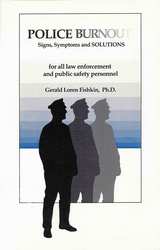
Police Burnout is the synthesis of Dr. Fishkin’s sixteen years experience as a police psychologist, and is a must read for all police officers, family members, police and public safety administrators, as well as mental health specialists who work in the area of law enforcement. It is a modern classic in the field of police psychology.
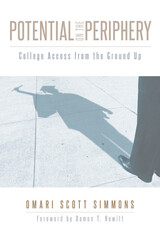
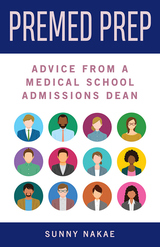
Premed Prep answers all these questions and more, with detailed case studies and insider tips that can help premed students authentically prepare and enjoy the journey from the very beginning. Sunny Nakae draws from her many years of experience as a medical school admissions dean to offer wise and compassionate advice that can help premed students of all backgrounds. She also has specific tips for students who are first-generation, minority, non-traditional, and undocumented.
Both forthright and supportive, Nakae’s advice is offered in a keep-it-real style that gives premed students a unique window into how admissions committees view and assess them. Premed Prep covers how to approach preparation with a focus on exploration and growth, and how to stop obsessing over med school application checklists. This book will do more than help you get a seat in medical school; it will start you on the process of becoming a successful future physician.
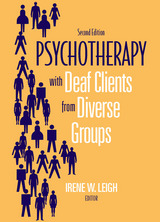
The second edition of Psychotherapy with Deaf Clients from Diverse Groups features the introduction of six new chapters that complement full revisions of original chapters with advances in the field since its initial publication. The first part begins with a new chapter on the current ethical issues relevant to working with deaf clients. In subsequent chapters it provides updated information on the diversity of consumer knowledge, attitudes, beliefs, and experiences. Deaf therapists and their involvement in the Deaf community also are scrutinized in this context.
The revised second part examines psychotherapy for various constituencies, including deaf women; lesbian, gay, and bisexual deaf populations; children of deaf parents; and people with Usher syndrome. Part Three chapters consider interventions with African American deaf clients, American Indians who are deaf, and Asians who are American and deaf. A new chapter expands information on therapy for Latino deaf clients.
The final section incorporates three new chapters on other deaf populations — deaf college students, recipients of cochlear implants, and deaf elderly clients. Also, new information has been added to chapters on the treatment of deaf survivors of sexual abuse and deaf clients with chemical dependency. The last addition to the second edition outlines dialectical behavior therapy for deaf clients, a valuable option for clinicians.
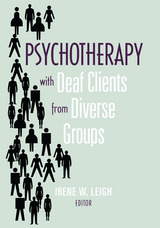
The second edition of Psychotherapy with Deaf Clients from Diverse Groups features the introduction of six new chapters that complement full revisions of original chapters with advances in the field since its initial publication. The first part begins with a new chapter on the current ethical issues relevant to working with deaf clients. In subsequent chapters it provides updated information on the diversity of consumer knowledge, attitudes, beliefs, and experiences. Deaf therapists and their involvement in the Deaf community also are scrutinized in this context.
The revised second part examines psychotherapy for various constituencies, including deaf women; lesbian, gay, and bisexual deaf populations; children of deaf parents; and people with Usher syndrome. Part Three chapters consider interventions with African American deaf clients, American Indians who are deaf, and Asians who are American and deaf. A new chapter expands information on therapy for Latino deaf clients.
The final section incorporates three new chapters on other deaf populations — deaf college students, recipients of cochlear implants, and deaf elderly clients. Also, new information has been added to chapters on the treatment of deaf survivors of sexual abuse and deaf clients with chemical dependency. The last addition to the second edition outlines dialectical behavior therapy for deaf clients, a valuable option for clinicians.
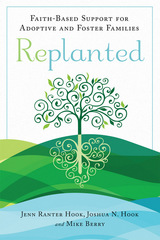
Many people embark on the journey of adoption and foster care but are unprepared for the challenges that await them along the way. Replanted takes an honest look at the joys and hardships that come with choosing this journey and provides a model of faith-based support made up of three parts to help families thrive: Soil, Sunlight, and Water.
- Soil, or emotional support, addresses the need for grace-filled settings where families can connect with other families who understand their experience.
- Sunlight, or informational support, focuses on obtaining helpful training to raise children who may have unique needs or challenges.
- Water, or tangible support, deals with concrete resources such as medical care, child care, and financial support.
Throughout the book, the Replanted model is brought to life by stories and examples based on the clinical work and personal experiences of the authors. Their candid insight will serve families who are actively involved in adoption or foster care, as well as people who are eager to help support those families.
Replanted affirms that with the right support system in place, parents can answer this sacred call not only with open hearts but also with their eyes wide open.
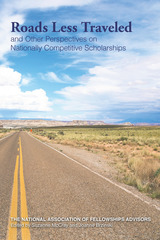
For many, the applications present an unfamiliar territory, so students seek out informed advisors who can help them navigate the terrain. This volume of essays is a great way for anyone advising students through an application to become an expert. Roads Less Traveled and Other Perspectives on Nationally Competitive Scholarships provides critical information from scholarship foundations about the best ways to guide students—from considering a career path, to completing the application, to preparing for an interview. Experienced advisors also share helpful tips on practical topics like writing letters of endorsement or assisting those who want to study abroad, and they provide programmatic advice on how to broaden the pool of applicants, address those with financial needs, and make all who apply feel the process has value beyond winning. Roads Less Traveled and Other Perspectives on Nationally Competitive Scholarships is a must for anyone advising students on scholarships.
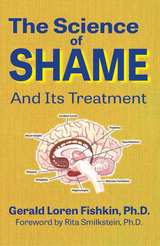
Through his empirical analysis and understanding of toxic shame, Dr. Fishkin has identified multiple effective clinical approaches for its treatment and addressing shame-based behaviors. He clearly outlines why contemporary treatment approaches, including cognitive behavioral therapy, do not treat core shame wounds and most often cause individuals to terminate the therapeutic process prematurely.
This book is a must-read for clinicians, addiction specialists, teachers, students of human behavior, counselors, social workers, patients in treatment.
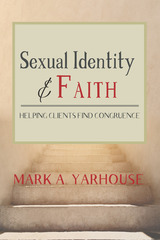
Christians who struggle with a conflict between their sexual and religious identities have few therapeutic options available to them. ‘Sexual orientation change efforts’ (SOCE) have rightly fallen out of favor and are no longer practiced by most clinicians. At the same time, the common approach of gay affirmative therapy (GAT) can at times present challenges and may not be a good fit when clients hold to conventional religious beliefs and values.
An alternative to these methods is Sexual Identity Therapy (SIT)—an approach that aims to provide individuals with a safe therapeutic space to explore the tension between their sexuality and their faith. Working within the SIT framework, clients are able to resolve their inner conflict to their personal satisfaction and to freely choose a coherent identity that enables them to move forward in life.
SIT has several stages, each designed to enable the client to make meaning out of his or her same-sex sexuality. At no point in the process is the client encouraged to choose one sexual identity over another. The ultimate goal of SIT is congruence. Congruence is achieved when a person freely adopts an identity and lives it out in ways that are in keeping with his or her beliefs and values. The SIT model is brought to life throughout the book with the help of case studies drawn from the author’s 20 years of experience.
Written for both Christian and non-religious clinicians, Sexual Identity and Faith is an informed, respectful, and nuanced guide to help people navigate the difficult conflict between who they are sexually and what they believe religiously.
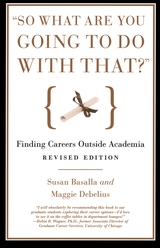
With “So What Are You Going to Do with That?” Susan Basalla and Maggie Debelius—Ph.D.’s themselves—answer all those questions with a resounding “Yes!” A witty, accessible guide full of concrete advice for anyone contemplating the jump from scholarship to the outside world, “So What Are You Going to Do with That?” covers topics ranging from career counseling to interview etiquette to translating skills learned in the academy into terms an employer can understand and appreciate. Packed with examples and stories from real people who have successfully made this daunting—but potentially rewarding— transition, and written with a deep understanding of both the joys and difficulties of the academic life, this fully revised and up-to-date edition will be indispensable for any graduate student or professor who has ever glanced at her CV, flipped through the want ads, and wondered, “What if?”
“I will absolutely be recommending this book to our graduate students exploring their career options—I’d love to see it on the coffee tables in department lounges!”—Robin B. Wagner, former associate director for graduate career services, University of Chicago
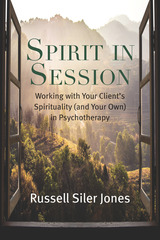
Spirituality is an important part of many clients’ lives. It can be a resource for stabilization, healing, and growth. It can also be the cause of struggle and even harm. More and more therapists—those who consider themselves spiritual and those who do not—recognize the value of addressing spirituality in therapy and increasing their skill for engaging it ethically and effectively.
In this immensely practical book, Russell Siler Jones helps therapists feel more competent and confident about having spiritual conversations with clients. With a refreshing, down-to-earth style, he describes how to recognize the diverse explicit and implicit ways spirituality can appear in psychotherapy, how to assess the impact spirituality is having on clients, how to make interventions to maximize its healthy impact and lessen its unhealthy impact, and how therapists can draw upon their own spirituality in ethical and skillful ways. He includes extended case studies and clinical dialogue so readers can hear how spirituality becomes part of case conceptualization and what spiritual conversation actually sounds like in psychotherapy.
Jones has been a therapist for nearly 30 years and has trained therapists in the use of spirituality for over a decade. He writes about a complex topic with an elegant simplicity and provides how-to advice in a way that encourages therapists to find their own way to apply it.
Spirit in Session is a pragmatic guide that therapists will turn to again and again as they engage their clients in one of the most meaningful and consequential dimensions of human experience.
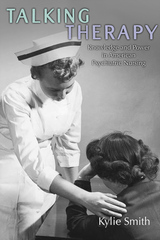
Winner of the 2020 Lavinia L. Dock Award from the American Association for the History of Nursing
Talking Therapy traces the rise of modern psychiatric nursing in the United States from the 1930s to the 1970s. Through an analysis of the relationship between nurses and other mental health professions, with an emphasis on nursing scholarship, this book demonstrates the inherently social construction of ‘mental health’, and highlights the role of nurses in challenging, and complying with, modern approaches to psychiatry. After WWII, heightened cultural and political emphasis on mental health for social stability enabled the development of psychiatric nursing as a distinct knowledge project through which nurses aimed to transform institutional approaches to patient care, and to contribute to health and social science beyond the bedside. Nurses now take for granted the ideas that underpin their relationships with patients, but this book demonstrates that these were ideas not easily won, and that nurses in the past fought hard to make mental health nursing what it is today.
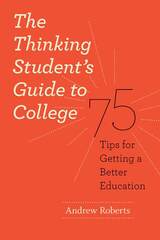
Each fall, thousands of eager freshmen descend on college and university campuses expecting the best education imaginable: inspiring classes taught by top-ranked professors, academic advisors who will guide them to a prestigious job or graduate school, and an environment where learning flourishes outside the classroom as much as it does in lecture halls. Unfortunately, most of these freshmen soon learn that academic life is not what they imagined. Classes are taught by overworked graduate students and adjuncts rather than seasoned faculty members, undergrads receive minimal attention from advisors or administrators, and potentially valuable campus resources remain outside their grasp.
Andrew Roberts’ Thinking Student’s Guide to College helps students take charge of their university experience by providing a blueprint they can follow to achieve their educational goals—whether at public or private schools, large research universities or small liberal arts colleges. An inside look penned by a professor at Northwestern University, this book offers concrete tips on choosing a college, selecting classes, deciding on a major, interacting with faculty, and applying to graduate school. Here, Roberts exposes the secrets of the ivory tower to reveal what motivates professors, where to find loopholes in university bureaucracy, and most importantly, how to get a personalized education. Based on interviews with faculty and cutting-edge educational research, The Thinking Student’s Guide to College is a necessary handbook for students striving to excel academically, creatively, and personally during their undergraduate years.
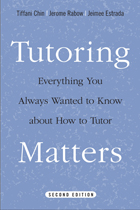
Tutoring Matters is the authoritative guide for both the aspiring and seasoned tutor. Using firsthand experiences of over one hundred new and experienced college student tutors, the authors offer techniques for handling tutoring anxieties, teaching strategies, and tips for building relationships.
This new edition has been fully updated to help tutors to engage the interest of their students. In addition, it features practical “tip boxes” that provide quick-reference guidelines on a range of tutoring challenges—from making a connection in your first tutoring session to becoming familiar with your pupil's life and tutoring needs. This new edition also provides practical experience-based tips "from the trenches" about how to tutor math and reading and how to help students develop other academic skills and interests.
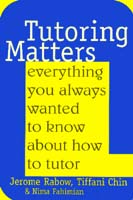
Tutoring Matters is the authoritative manual for both the aspiring and seasoned tutor. Using firsthand experiences of over one hundred new and experienced tutors, this long-awaited guide offers chapters on attitudes and anxieties, teaching techniques, and building relationships. It educates the tutor on how to handle and appreciate social and language differences; how to use other adults -- teachers, administrators, parents, employers -- to a student's advantage; and, when your student or circumstances determine that it's time, how to put a positive and supportive end to the tutor-tutee relationship.
Written by experienced tutors and tutoring educators, Tutoring Matters celebrates -- and provides just the right tools for -- an individualized and successful tutoring relationship and shows just how much you can learn -- about the world and yourself -- through teaching others.
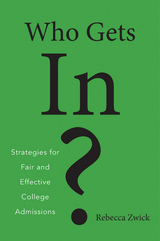
When it comes to the hotly disputed topic of college admissions, the one thing everyone agrees about is that it’s unfair. But there is little agreement on what a fair process would be.
Rebecca Zwick takes a hard look at the high-stakes competition of U.S. college admissions today. Illustrating her points using analyses of survey data from applicants to the nation’s top colleges and universities, she assesses the goals of different admissions systems and the fairness of criteria—from high school grades and standardized test scores to race, socioeconomic status, and students’ academic aspirations. The demographic makeup of the class and the educational outcomes of its students can vary substantially, depending upon how an institution approaches its task. Who Gets In? considers the merits and flaws of competing approaches and demonstrates that admissions policies can sometimes fail to produce the desired results. For example, some nontraditional selection methods can hurt more than help the students they are intended to benefit.
As Zwick shows, there is no objective way to evaluate admissions systems—no universal definition of student merit or blanket entitlement to attend college. Some schools may hope to attract well-rounded students, while others will focus on specific academic strengths. What matters most is that a school’s admissions policy reflects its particular educational philosophy. Colleges should be free to include socioeconomic and racial preferences among their admissions criteria, Zwick contends, but they should strive for transparency about the factors they use to evaluate applicants.
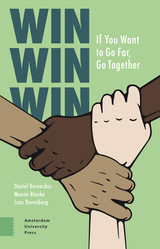
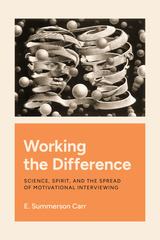
Motivational interviewing (MI) is a professional practice, a behavioral therapy, and a self-professed conversation style that encourages clients to talk themselves into change. Originally developed to treat alcoholics, MI quickly spread into a variety of professional fields including corrections, medicine, and sanitation. In Working the Difference, E. Summerson Carr focuses on the training and dissemination of MI to explore how cultural forms—and particularly forms of expertise—emerge and spread. The result is a compelling analysis of the American preoccupations at MI’s core, from democratic autonomy and freedom of speech to Protestant ethics and American pragmatism.
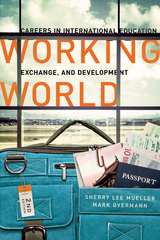
Now available in a new second edition, Working World: Careers in International Education, Exchange, and Development offers an engaging guide for cause-oriented people dedicated to begin or enhance careers in the now burgeoning fields of international affairs. Mueller and Overmann expand their original dialogue between a career veteran and a young professional to address issues that recognize the meteoric rise of social media and dramatic geopolitical events. They explore how the idea of an international career has shifted: nearly every industry taking on more and more international dimensions, while international skills—linguistic ability, intercultural management, and sensitivity—become ever more highly prized by potential employers.
This second edition of Working World offers ten new and four significantly updated profiles as well as new and expanded concepts that include work-life balance, the importance of informational interviews, moving on, and key building blocks for international careers.Like the award-winning first edition, Working World is a rare and valuable resource to students and graduates interested in careers in international affairs, mid-career professionals who want to make a career change or shift, as well as guidance counselors and career center specialists at universities.
READERS
Browse our collection.
PUBLISHERS
See BiblioVault's publisher services.
STUDENT SERVICES
Files for college accessibility offices.
UChicago Accessibility Resources
home | accessibility | search | about | contact us
BiblioVault ® 2001 - 2024
The University of Chicago Press









